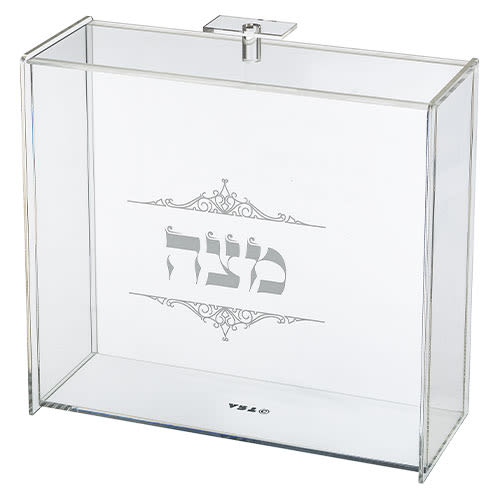
Vayakhel: Together, But Separate
There's much talk about gender separation both in the home and in the public domain. Is it necessary? Is it anything more than a needless stringency?

"And Moses assembled the entire assembly of the Children of Israel…" (Exodus 35:34).
Rabbi Chaim ben Attar, the holy "Ohr Hachaim" teaches that Moses assembled "the men separately and the women separately, and they neither mingled nor stood together.” Rabbi Moshe ben Nachman, the holy "Ramban", writes that the reason for the assembly was to explain to the entire nation all about the Holy Tabernacle and the commandments associated with it. The two above commentaries, although seemingly different, complement one another, in the following manner:
The Tabernacle, which was the mobile predecessor of the Holy Temple from the time that Israel sojourned in the desert until King Solomon built the permanent temple in Jerusalem, was the epitome of holiness. As such, Moses separated between the men and the women to prepare them for this exalted level of holiness, as a precondition for hosting the Divine Presence in their midst. So, if this measure of separating between men and women was necessary as a preparation for receiving the laws of the holy Tabernacle and Temple, imagine how critical it is to insure the separation of the sexes in the actual holy Tabernacle or  the Temple.
the Temple.
Rabbi Chaim Falagi writes (Tzava'a Me'Chaim, 60), "We never set a table for men and women to eat at together; we sat the men separately and the women separately. Even with the children, little boys and little girls wouldn't sit at the same table." This may sound extreme, but Rabbi Falagi wouldn't allow brothers in-law and sisters in-law to mingle. There's no difference between over-familiarity with a brother's wife or a sister's husband than with a total stranger. What's more, there have been horror stories about families who took this matter lightly. Even so, one may think that this is a bit extreme; in your own house, to have separate seating between men and women? Although this is not the mainstream custom in most Orthodox families, there are different degrees of separation, as follows:
1. Some homes have men and women seated in entirely different rooms.
2. Some homes have men and women seated at separate tables in the same room.
3. Other homes have men and women seated at the same table, but with the men on one end and the women on the other.
Every family should consult with their rabbi and spiritual guide as to what practice is best for them and not take on stringencies within the home that will end up being detrimental to their service of Hashem. For example, if the women don't hear the words of Torah being spoken at the table and are merely engaged in idle chatter, then the loss would outweigh the gain.
There's much room for discussion within the family domain, yet in the public domain, mingling between the sexes is a formula for trouble. No one has a life insurance policy against temptation; the evil inclination is capable of making the wicked witch of the north on a broomstick look like a Parisian fashion model.
Guarding one's eyes and thoughts is a difficult enough challenge. Why add temptation with our own two hands?
People have expressed opposition to gender separation in the public domain as well. For example, the claim that gender separation on buses is undemocratic, expressing their distaste with the Mehadrin buses in Israel. Once again, where there's no mingling, there's less chance of temptation. As the old adage says, if you don't walk near the edge of the cliff, you won't fall off the mountain…
With all the possible debate and discussion in the home and in the public domain, in a place of worship, all talk ends. The Gemara tells us that wherever there's a prayer quorum of ten men or more, the Divine Presence is with us. Yet, the Torah warns that where there is any breach of holiness, the Divine Presence departs (see Deuteronomy 23:15). Therefore, there is no question that within a house of prayer, complete separation of the sexes is required if we want our prayers to be heard and answered. Let's never forget: the hallmark of the Jewish People is their personal and national holiness.










Tell us what you think!
Thank you for your comment!
It will be published after approval by the Editor.